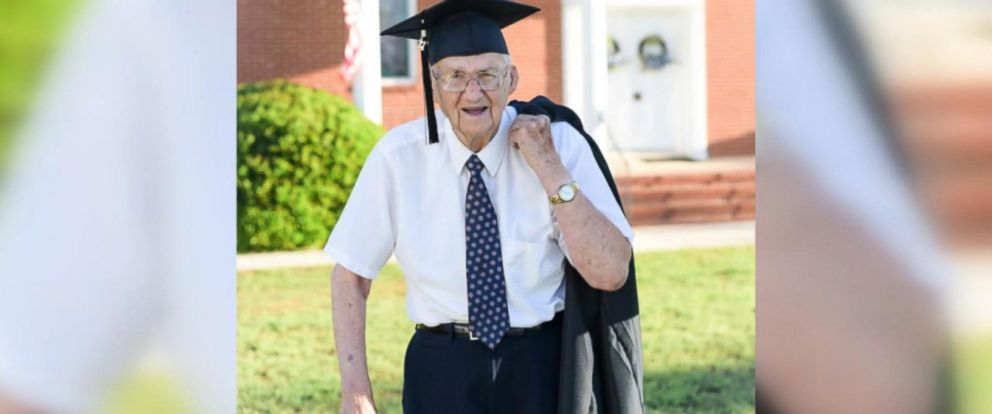About Me
Why Older Adults are Going Back to School
Factors motivating and influencing lifelong learners to continue their education are discussed, along with how the Plus 50 Initiative supports them.

One in five Americans is over the age of 55 and this will increase to 50 percent by 2030 (U.S. Census Bureau, 2015). These older adults are changing the face of adult education as they go back to school. Also, these same adults do not want to be identified as senior citizens or older adults; they want to be known as lifelong learners.
Facts about Lifelong Learners: Their Preferences
Of the 17 million college students in the United States, over half a million of these students are over the age of 50 (U.S. Census Bureau, 2015), according to https://writemypaperbro.com/. This does not even take into consideration the number of lifelong learners who are enrolled in noncredit and other lifelong learning courses sponsored by adult education programs.
Older students going back to school in pursuit of lifelong learning have a preference for (American Council on Education, Higher Education for Older Students, 2018):
- community or junior colleges, where 50 percent attend, because of the convenience and outreach programs
- intergenerational classes, where they can learn from younger students and share their knowledge with them
- avoiding programs targeted at senior citizens and older adults. They prefer lifelong learners or third generation learners, because it implies continual learning
- classes offered on main campus or branch campuses. However, there is an increasing number who prefer online courses because they are comfortable with technology
- programs such as health services, teacher education, fine arts/humanities, human service and counseling, and entrepreneurship. They also enroll in both credit and non-credit continuing education courses.
Factors Influencing Lifelong Learner Education: What Drives Them
The inner drive for many lifelong learners is often not focused on any single program or degree, they are not particular or selective, or follow chronological programs. When going back to school they are more interested in the following three factors which influence their decisions regarding adult education and lifelong learning (American Council on Education, Higher Education for Older Students, 2018).
Learning to Work – many seek adult continuing education venues to prepare for another career after retiring, which they find more meaningful compared to their previous career. They also find personal achievement when learning something new, benefiting the community, and in many cases – an income. They also view learning to work as a means to:
- improve their work skills to re-enter the work or career advancement
- train for a new career after losing their current jobs
Learning to Learn – lifelong learning is a means of sensing who they are and helping them manage their aging process. They want to learn new information for just for themselves and not to meet other people’s expectations. They also view learning to learn as:
- a means for staying active and engaged, both physically and mentally
- an integral part of their lives, now and in the future. They do not want to just sit around and wait for the inevitable
- a means to engage in community work or re-enter the work force
Learning to Connect – they want to connect across generations and community groups. This helps remove the isolation many older adults encounter or feel after leaving the work force. They also view learning to connect as a means to:
- mentor younger college students using their prior knowledge and experiences
- learning from younger students
Recent Entries
The Top NY Dental Hygienist Schools – New York Dentistry Programs
Teacher Jobs – Elementary Teacher Jobs, Salary and Benefits
Changing Careers and Transferable Job Skills
Free Computer Technology Courses for Adults
One Education Program: Plus 50 Initiative for Lifelong Learners
The Plus 50 Initiative education program at the American Association of Community Colleges (AACC) is spearheading a movement by community colleges to help adults age 50 and over prepare for new jobs, along with sharpening their marketable job skills. The need for this program was founded in the wake of the latest recession when so many older adults found themselves unemployed and financially burdened.
This program is specifically designed to take advantage of the large number, 50 percent of older students, who are enrolled in community or junior colleges. This program focuses on:
- Workforce Training and Career Development – designed to help students upgrade their job skills, license or certification, for re-entering the workforce or career advancement.
- Learning and Enrichment – are courses designed for personal improvement, such as general studies and personal interests such as cooking.
- Volunteering – organizing older students who want to participate in community volunteer events to share their skills and talents.
Older students are reinventing retirement by going back to school. They are living longer, are more healthy and active. They want to continue their education for self-improvement or financial necessity. Many also seek retraining for another career after retiring, as a means for staying active and doing something they enjoy. Finally, they do not view themselves as senior citizens – they are lifelong learners or third-generation learners.
More Sources
https://social.abbr.site/read-blog/576_how-to-get-a-master-039-s-degree-in-library-science.html

